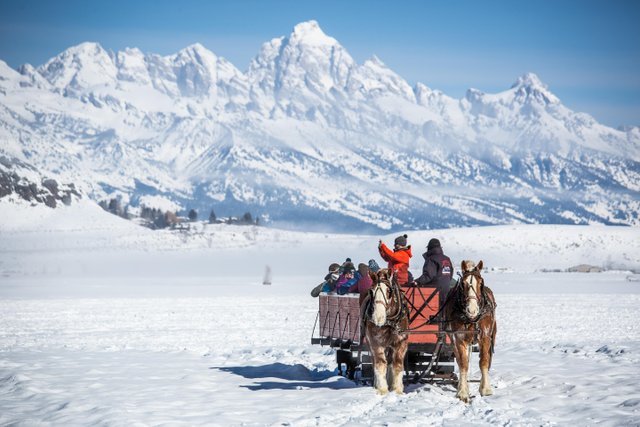The Woodland Language
29 Sep 2020
A hunter’s quest for sound
Summer 2020
Written By: Christopher Bancroft | Images: Carson Meyer
The obvious irony of Jackson is the solitude of nature that’s disrupted by the bustle of humans. The bark of a dog, the splash of a kid jumping into String Lake, and a park ranger’s tale, all interrupt nature’s native noise. Sound is an often-overlooked aspect of Teton County because the visuals tend to overwhelm the senses. It’s something that can be cured by setting out into the woods with the intention of harvesting meat.
Each animal in the region carries with them a sign or sound that alerts hunters to their presence. A frequent visitor to the valley is the Barrow’s goldeneye, a diving duck that migrates through the year, seeking fair weather. Their rhythmic whistling in flight, once identified, is difficult to mistake for anything else. Even on a moonless night, the trained ear knows their avian company is near without ever laying eyes on them. The same goes for a fowl hunter sitting on the river’s edge during a foggy fall morning. By simply listening for the breach in silence, a hunter knows what will be on the dinner table before they see it.
This concept isn’t just for land-dwelling critters. The native Snake River cutthroat trout, which inhabits rivers, creeks, and lakes can be spotted without sight. As many anglers know, the splash of water turbulence across a rock or downed tree cannot be confused with the gulping of a hungry trout. The latter sound causes the hook-wielding human to unconsciously swing their attention and fly in the direction of the faint disruption. Few resting insects are sheltered from the ruthless cutthroat, and few cutthroat are safe when they expose themselves to an ear-trained angler. It’s the circle of life.
However, the king of the forest makes his authority known right before the leaves begin to change color. The rut, overlapping with the fall hunting season is a special time of year when bull elk transform from cautious herd animal to aggressive brutes. Squirrels chirp back and forth, warning each other as the beasts crash through the brush with one thing in mind: finding a mate. The desire to procreate overrides their inclination to maintain secrecy, and with a massive inhale, the bull lets out a powerful scream — a song that rips across the landscape, commanding respect from everyone who hears it.
Any outdoor enthusiast can learn the woodland language, but it’s the hunter who has the greatest motive. Silence is paramount, and a keen ear is often the most important tool when on the trail of prey. And just like birds, fish, and land animals, humans have their own tell — the crinkle of a leaf under a mislaid hunting boot signifies the first of many errors in an endeavor to understand the noisy world of nature.











